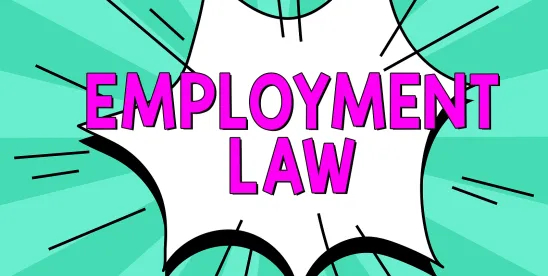Employers can provide valuable emergency benefits to help employees in some of their most trying times, whether illness, natural disaster, or anything in between. Having these benefits ready and available can help employers attract and retain employees and make hard times a little smoother. This advisory will explore some of the most common options to assist employees who have been affected by emergencies or disasters.
Leave Sharing Programs
Leave sharing allows employees to donate their personal leave or vacation time to a leave sharing pool. Employees who need leave for a medical emergency or major disaster (natural or otherwise) may use the leave that other employees have contributed to the leave sharing pool to extend the time they can take paid leave. Leave sharing programs are voluntary, and employees may not donate leave that is required by state or other applicable laws. Donors may not select the recipients of the leave they donated. Assuming the program is correctly established, employees who choose to donate do not pay tax on the leave they contribute, making this a good option for people who wish to help their fellow employees.
Qualified Disaster Payments
Employers may provide tax-free payments to employees who have experienced disasters for necessities such as residential repair, reasonable and necessary family and living expenses, funeral expenses, and replacement of key, non-luxury items including beds and kitchen appliances. Employers may not provide tax-free payments for items already covered by the employee’s insurance. Employers can select almost any payment amount, small or large, and can limit amounts by individual or for all employees, so long as the benefits are provided in a non-discriminatory manner.
Retirement Plan and Qualified Disaster Withdrawals
Recent changes to retirement plan rules have created new options for helping employees who experience a qualified federally-declared disaster. Employers sponsoring 401(k), 403(b), or governmental 457(b) plans may allow plan participants affected by a federally-declared disaster to take a distribution from their accounts. The distribution can be in an amount up to $22,000 (although not all participants will be permitted to take that amount). These qualified disaster recovery withdrawals are not subject to the 10% early withdrawal penalty that may otherwise apply to distributions before age 59½. Participants may repay qualified disaster recovery withdrawals to the plan over the three years following the withdrawal. This ability to repay a previous distribution can allow participants who recover from the disaster to restore retirement savings, a rare option with regard to plan distributions. To provide for qualified disaster withdrawals and repayments, the retirement plan must be amended to reflect the availability of this option.
Non-Employer Provided Benefits
Beyond what employers provide, employees who have experienced a federally declared emergency may be eligible for a variety of governmental (local, state, and federal) benefits. What is available depends on the specific circumstances. Employers interested in informing employees about these benefits should talk with their legal counsel or consultants to determine what is currently available and how to best communicate those options.





 />i
/>i
